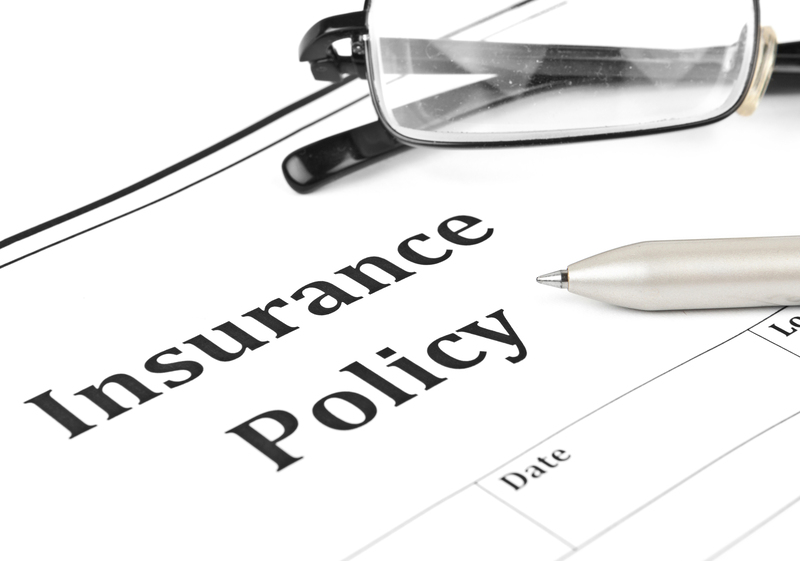What to Know Before Moving a Piano and Why to Rethink Doing It Alone
Moving a piano is no small feat. With their imposing size, intricate components, and immense value--both sentimental and financial--pianos present unique challenges. If you're considering relocating a piano, it's crucial to understand the risks, necessary preparations, and why attempting to move it without professional help can be a serious mistake. This comprehensive guide will walk you through everything you need to know before moving a piano, spotlighting the key reasons why doing it alone could cost you more than you imagine.

Understanding the Complexity of Moving a Piano
The very first step in safe piano relocation is to recognize what makes moving these instruments especially demanding:
- Weight: Even the smallest upright pianos often weigh over 300 pounds, while grand pianos can tip the scales at 1,200 pounds or more.
- Shape and Size: Pianos are both long and bulky, making them awkward to maneuver through doorways or around corners.
- Fragility: They contain delicate internal parts--upwards of 10,000--such as strings, hammers, and keys that are easily damaged.
- Value: Many pianos have significant monetary or sentimental value, making prevention of damage crucial.
Moving a piano is not just about hauling weight; it's an exercise in both careful handling and expert judgment.
Common Types of Pianos and Their Unique Challenges
Upright (Vertical) Pianos
- Spinets: The smallest, yet still heavy and delicate.
- Consoles and Studios: Often found in homes and schools, still pose the usual handling and balance issues.
- Full-size Uprights: Can weigh up to 800 pounds; tall, heavy and require careful tilting.
Grand Pianos
- Baby Grands: Smaller but still require careful detachment of legs and pedals.
- Concert Grands: Massive, heavy, and expensive--demand several professionals and specialized equipment.
The complexity and cost of damage for grand pianos is exponentially higher. Whether it's an upright or a concert grand, moving a piano by yourself is fraught with risks you might not have considered.
Why Moving a Piano Alone Is Risky
It may be tempting to recruit friends and tackle a DIY piano move, but you'll want to rethink this plan. Here's why moving a piano solo or with untrained help almost always ends badly:
Risk of Severe Injury
- Back Strain and Broken Bones: Even if you're strong, improper technique may cause serious injuries for you and your helpers.
- Crushed Fingers and Toes: Pianos shift suddenly during lifts and turns, putting all limbs in danger.
- Accidents on Stairs: Carrying hundreds of pounds on steps without professional tools is a recipe for disaster.
High Chance of Property Damage
- Scratched Floors: Even a single pivot can gouge hardwood or crack tiles.
- Dented Walls and Doors: One slip and it's expensive repairs.
- Broken Railings: Narrow stairwells and corridors are particularly problematic.
Irreparable Piano Damage
- Misaligned Keys or Strings: Inappropriate handling knocks sensitive parts out of alignment.
- Cracked Soundboard: The heart of your piano--a costly, sometimes irreversible repair.
- Finish Scratches and Chips: Moving blankets may not protect against all risks without precise wrapping.
If you're not a trained piano mover, the cost of a failed DIY piano move could be far more than what you'd pay for professional help.
How Professional Piano Movers Make a Difference
What sets expert piano moving professionals apart is their training, equipment, and insurance. Here's why hiring pros is money well spent:
- Specialized Equipment: From heavy-duty dollies to custom rolling boards, moving straps, and climate-controlled trucks--these tools are not found in a typical DIY move.
- Proven Techniques: Piano movers are trained in balance, leverage, wrapping, and disassembly to avoid all harm to the instrument and property.
- Insurance Protection: Reputable moving companies carry insurance to cover any extremely rare accidents or damages.
- Experience with Obstacles: They have navigated tight corners, elevators, uneven steps, and more, ensuring both safety and peace of mind.
Professional movers are not an extravagance but a necessity when safety, financial security, and your beloved instrument are on the line.
Essential Preparations Before Moving a Piano
Even if you hire professionals, there are critical steps to take beforehand. Here's a piano moving checklist to ensure everything goes smoothly:
- Measure Everything: Measure the piano, doorways, hallways, stairs, and moving paths to identify obstacles in advance.
- Clear the Path: Remove rugs, furniture, and obstacles from the moving route.
- Secure Children and Pets: Ensure kids and animals are safely away during the move.
- Communicate with Movers: Share all possible challenges and dimensions to avoid surprises.
- Protect the Instrument: Close and lock the keyboard lid; cover the body with moving blankets, and ensure all parts are secure.
- Check Insurance: Whether you're moving it yourself or not, find out what insurance exists to cover any mishaps.
Pro Tip:
Always have your piano professionally tuned after any move since changes in position, humidity, and temperature can throw off its sound, even if moved perfectly.
Frequently Asked Questions About Moving a Piano
Can a piano be moved without professionals?
Technically, yes. But most experts and past DIY movers overwhelmingly recommend hiring professional piano movers to avoid costly, hazardous mistakes.
How much does it cost to move a piano?
Costs vary by instrument size, distance, obstacles (like stairs or tight doors), and location. Local upright moves may start at $150, while grand pianos or long-distance moves may cost $1,000 or more. However, this fee is easily offset by avoiding hundreds or thousands in potential repairs.
What special equipment is used for piano moving?
Movers use piano skids, heavy-duty dollies, ramps, lifting straps, and protective blankets. For grand pianos, legs, pedals, and lyres may be removed and securely packed.
Are there different risks between moving upright and grand pianos?
Yes. Grands are more complex due to their shape and leg assemblies, while uprights are tall and top-heavy, easily tipped. Both require unique handling strategies, but the grand often demands more expertise and multiple people.
Additional Tips for Safe Piano Relocation
- Never Drag a Piano: Lifting and using proper dollies prevents breaking legs or damaging floors.
- Avoid Sharp Tilting: Sudden shifts are dangerous for both the piano and movers; gentle angles are safest.
- Dress Appropriately: Use gloves, supportive shoes, and snug clothing.
- Plan for Tuning: Changes in position, temperature, and vibration mean the piano must be retuned after relocation.
What to Do If You Must Move a Piano Without Professionals
- Gather at least 4 strong, careful helpers.
- Rent or buy the correct moving equipment (skid board, dollies, straps, blankets).
- Measure all spaces and remove obstacles.
- Plan the route and assign clear roles.
- Move slowly, communicate constantly, and never rush a step.
- Avoid stairs if possible.
- Arrange for immediate tuning and inspection by a piano technician after the move.
However, even with the best preparations, it's always safer--and often cheaper in the long run--to leave piano moves to the experts.

Conclusion: Why You Should Think Twice Before Moving a Piano Alone
Whether you're moving across town or just to a different room, relocating a piano is a job best left to those with training, experience, and the right equipment. The potential costs--physical injury, property damage, and expensive or irreparable harm to your cherished piano--are just too high.
Rethinking moving a piano by yourself isn't just about convenience; it's about the safety of everyone involved, the preservation of your instrument, and the protection of your home.
If you're planning a piano move, do yourself, your back, and your instrument a favor: Get a quote from a professional piano moving service and enjoy peace of mind. Your piano, your friends, and your wallet will thank you.
Need Expert Help Moving Your Piano?
Contact your local piano moving professionals today for a safe and stress-free relocation!



